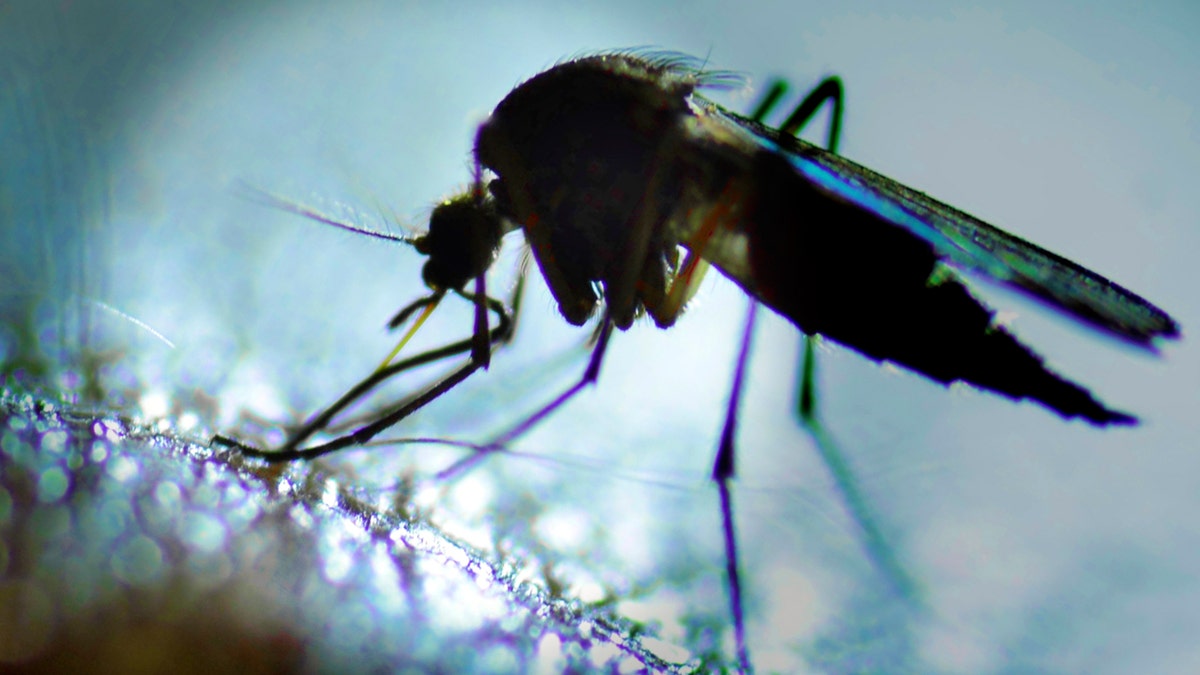
mosquito (Rolf Aasa Taby;)
Spring is here -- and, along with it, plenty of bugs. Granted, most of the insects in and around your house are more creepy than dangerous, but some can spread serious diseases. One that's been grabbing headlines is the mosquito-transmitted Zika virus, which has been linked to birth defects.
In order to stay safe, as well as reduce the amount of time you spend swatting away pesky insects, it's well worth it to know how to keep them at bay.
So far, 258 Americans have fallen ill with the Zika virus disease (though none was bitten in the U.S.), and the number of cases is expected to grow. In fact, although the type of mosquito that was first identified as carrying Zika typically lives in tropical and subtropical climates, it can survive in the U.S. during summer months, according to a recent study in PLOS, a website that publishes peer-reviewed science research. Another study found that the Culex family of mosquitoes, the most common mosquito in the U.S., is also capable of reproducing Zika in its salivary glands and passing it on to humans.
In 2015, 2,060 U.S. cases of the mosquito-borne West Nile virus disease were reported to the Centers for Disease Control, along with 300,000 cases of tick-borne Lyme disease and even 10 cases of the plague, carried by fleas.
The good news is, there are plenty of ways to ward off these insects. Here are a few tactics to try that will help you rest a little easier in the great outdoors.
Mosquitoes
The mosquito's high-pitched buzz is a warning signal that this flying disease delivery system is preparing to land and bite, injecting all assortment of ailments, including West Nile virus (Culex pipiens); La Crosse encephalitis and dengue (Aedes albopictus); and chikungunya, Zika, and yellow fever (Aedes aegypti).
So how do you keep mosquitoes at bay? By banishing their eggs. Mosquitoes can lay eggs in any stagnant or slow-moving water. The best way to prevent swarms is to dry up puddles, regrade low-lying yard areas, remove old tires and buckets, and add a wiggler to birdbaths and other water features to keep water moving.
"Mosquitoes can lay their eggs in [a body of] water the size of a soda cap," says Cindy Mannes, a spokeswoman for the National Pest Management Association.
As part of your spring-cleaning chores, repair holes in window and door screens. And if you have pets that traipse in and out of your home, install a dog door or self-closing magnetic screens.
Houseflies
Flies often share our homes in summer when they enter through open windows and doors. In the process, they can share dysentery, cholera, and typhoid fever (5,700 U.S. cases annually) every time they land on your lunch. So it's really worth shooing them away.
The best way to reduce your housefly population is to cut off their food supply. Cover garbage cans tightly, bag grass clippings, wipe counters clean of crumbs, and "cook" compost in closed containers.
Gary Roberts, president of Acenitec Pest and Lawn Services in Oklahoma City, says the best way to keep houseflies out of your home is to repair holes in window and door screens, caulk around plumbing pipes and heating vents; and fill gaps between floors and the bottom of doors.
"I'll squat to look under the bottom of the exterior doors to see if I can see sunlight," Roberts says. "If I can, I'll suggest clients put in a new door sweep."
To round up flies after they've invaded your home, tack up flypaper, spray flies with Windex or hairspray, which makes it harder for them to fly and easier for you to swat; or set out fly bait.
Fleas
Fleas are more than just an itch-causing nuisance that's ridiculously hard to get rid of. The hippety-hopping bugs also carry the plague -- even in the U.S. -- and murine typhus, which can cause fever, headaches, and rashes.
If you have pets, or even if past residents had pets, there's a good chance fleas are living in your carpet, drapes, and furniture. Outdoor cats, for instance, often carry fleas infected with murine typhus.
To get rid of fleas, bathe pets with a flea shampoo, or apply a flea dip, a concentrated and potent chemical. Then, wash all bedding, rugs, and throws in soapy water on the highest setting (the fleas will either be killed by the soap or drown). If that doesn't do the trick, spray or bomb your house with an insect growth regulator such as methoprene.
To prevent future flea infestations, treat your pets to a flea collar, topical flea treatments, or monthly flea tablets.
Ticks
Only a few of the many tick species transmit disease to humans; but those that do -- American dog tick, blacklegged (deer) tick, Rocky Mountain wood tick -- spread such diseases as Lyme disease and Rocky Mountain spotted fever, which affect humans and pets.
Ticks live in moist places near and around grassy, wooded areas. They're most active in April through September, the months you're most active outdoors, too. To reduce the chance of getting bitten, locate swingsets and compost piles -- ticks love compost -- away from places where humans play. And since ticks hitch rides on deer, don't plant species that deer love to nibble, such as hardy geranium, berry-producing shrubs, and fruit trees.